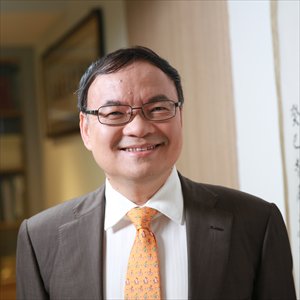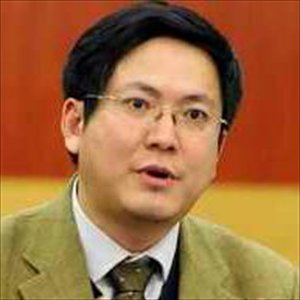HOME >> OP-ED
Equal laws for all vital
Source:Global Times Published: 2014-12-4 0:28:01
Editor's Note:
The fourth plenum of the 18th CPC Central Committee in October highlighted establishing the rule of law in China. At this stage of social transformation, what are the biggest challenges does China face in terms of practicing the rule of law? And what are the unique characteristics of China's rule of law? The Global Times invited several domestic and foreign experts to comment.
Zhi Zhenfeng, associate research fellow at the Institute of Law, Chinese Academy of Social Sciences

The implementation of the Chinese Constitution is led by the CPC. Thus, a debate about which should prevail, the Party or the Constitution, has gone on and on for years. But this debate is actually a pseudo-proposition. People who ask this question does not understand the logic of Chinese politics.
The CPC's leadership has gone beyond the conventional understanding of how a political party impacts a country. The CPC, to some extent, is no longer a "political party," but has evolved into a nationwide mechanism. It's inappropriate to make comparisons between Western political parties and the CPC.
The logic of Chinese politics requires an integration of the CPC's leadership and the rule of law. The CPC, as an omnipotent mechanism, is responsible for making laws, including the Constitution, accord with the cardinal interests of most people. Everyone, including the top CPC leaders and the CPC organs, must comply with the law. The CPC leadership and the rule of law make each other possible.
Tom Zwart, professor of Human Rights at Utrecht University and director of the Netherlands School of Human Rights Research

Liu Hong, director of Nanyang Center for Public Administration at Nanyang Technological University

Gong Weibin, director of Research Center of Social Governance at the Chinese Academy of Governance

It is important to formulate laws that accord with people's immediate interests, China's reality and due procedures. Officials should take the lead to learn about and abide by laws, setting an example for the public.
Zhang Xiaoling, professor and director of the Human Rights Studies Center of the Party School of the CPC Central Committee

China's establishment of the rule of law complies with a progressive trajectory instead of making great leaps forward to the very end. The emphatic integration of the rule of law and human rights indicates that China's top leadership will touch the core of this endeavor.
The focus of the next step to carry forward these proposals has been put on an unequivocally solid judicial reform. More than 70 down-to-earth measures, the most among all sectors of the blueprint, have been introduced to make sure that a sustainable and effective judicial system can be a strong shield to protect human rights.
The reopening of the well-known Qoysiletu case, a rape and murder case in Inner Mongolia that ended in 1996 with the probably innocent suspect's execution, might set the keynote to beef up the authority and effectiveness of the judicial system.
Shaun Breslin, director of the Centre for the Study of Globalisation and Regionalisation, University of Warwick

The third plenum pointed toward the economic changes that are deemed to be necessary, and we have seen some, though still far from complete, movement in that direction.
The need for change has been broadly accepted, but there is still a long way to go in implementing a fundamental shift. The anti-corruption campaign has been a step in mending the social contract.
Jacques deLisle, Stephen A. Cozen professor of law and professor of political science at the University of Pennsylvania Law School

Several mechanisms sometimes lead to decisions by courts or other legal institutions that do not accord with the law, such as the use of personal connections, judicial and other forms of corruption.
Uneven levels of competence and professionalism persist among judges and other State personnel with responsibility for legal affairs.
Besides, ambivalent or narrowly instrumental views of the law's role seem to persist among some of China's ruling elite.
A full-fledged rule of law means accepting significant legal limits on Party and State power and accepting law-mandated outcomes that sometimes are at odds with Party or State goals and preferences.
Establishing the rule of law is not an easy task in any country, including China.
The fourth plenum of the 18th CPC Central Committee in October highlighted establishing the rule of law in China. At this stage of social transformation, what are the biggest challenges does China face in terms of practicing the rule of law? And what are the unique characteristics of China's rule of law? The Global Times invited several domestic and foreign experts to comment.
Zhi Zhenfeng, associate research fellow at the Institute of Law, Chinese Academy of Social Sciences

Zhi Zhenfeng
The communiqué by the fourth plenum of the 18th CPC Central Committee stressed that "Efforts to adhere to the rule of law should give priority to the rule of the Constitution." Before this explicit, authoritative recognition of the importance of the Constitution, constitutionalism had been called for in Chinese public discourse in recent years. But the rule of the constitution is different from Western constitutionalism to some extent.The implementation of the Chinese Constitution is led by the CPC. Thus, a debate about which should prevail, the Party or the Constitution, has gone on and on for years. But this debate is actually a pseudo-proposition. People who ask this question does not understand the logic of Chinese politics.
The CPC's leadership has gone beyond the conventional understanding of how a political party impacts a country. The CPC, to some extent, is no longer a "political party," but has evolved into a nationwide mechanism. It's inappropriate to make comparisons between Western political parties and the CPC.
The logic of Chinese politics requires an integration of the CPC's leadership and the rule of law. The CPC, as an omnipotent mechanism, is responsible for making laws, including the Constitution, accord with the cardinal interests of most people. Everyone, including the top CPC leaders and the CPC organs, must comply with the law. The CPC leadership and the rule of law make each other possible.
Tom Zwart, professor of Human Rights at Utrecht University and director of the Netherlands School of Human Rights Research

Tom Zwart
The importance attached to human rights, especially in the area of criminal law, is growing by the day. Several measures have been put in place already to enhance the independence of courts and judges, like transferring the payment of judges' salaries to the provincial or central level. The fourth plenum has now added the possibility to "shame" officials who interfere with the course of justice as well as the authority of the Supreme People's Court to set up judicial districts which do not coincide with political units. In particular, the option to set up such districts is very innovative and is likely to solve part of the problem.Liu Hong, director of Nanyang Center for Public Administration at Nanyang Technological University

Liu Hong
The main challenges include how to establish a systemic structure of rule of law covering all aspects of political and social development, including those areas that protect the civil rights of individual citizens. Besides, China has to consider how to instill government officials, some of whom are used to the idea that power is above the law, with the indispensable spirit and knowledge of implementing policies and procedures according to the law.Gong Weibin, director of Research Center of Social Governance at the Chinese Academy of Governance

Gong Weibin
Laws and regulations are just words on paper if they aren't obeyed by the public in their daily life and work. Despite notable progress in legislative and judicial systems and publicizing the law, China is still far from being a society ruled by law. People often lack legal knowledge and consciousness to protect their rights.It is important to formulate laws that accord with people's immediate interests, China's reality and due procedures. Officials should take the lead to learn about and abide by laws, setting an example for the public.
Zhang Xiaoling, professor and director of the Human Rights Studies Center of the Party School of the CPC Central Committee

Zhang Xiaoling
The thread running through the communiqué issued by the 18th CPC Central Committee after its fourth plenum is human rights. One of the biggest highlights of the document is that the rule of law is reinforced as the basic framework to support the development of China's human rights.China's establishment of the rule of law complies with a progressive trajectory instead of making great leaps forward to the very end. The emphatic integration of the rule of law and human rights indicates that China's top leadership will touch the core of this endeavor.
The focus of the next step to carry forward these proposals has been put on an unequivocally solid judicial reform. More than 70 down-to-earth measures, the most among all sectors of the blueprint, have been introduced to make sure that a sustainable and effective judicial system can be a strong shield to protect human rights.
The reopening of the well-known Qoysiletu case, a rape and murder case in Inner Mongolia that ended in 1996 with the probably innocent suspect's execution, might set the keynote to beef up the authority and effectiveness of the judicial system.
Shaun Breslin, director of the Centre for the Study of Globalisation and Regionalisation, University of Warwick

Shaun Breslin
China's economic model needs to be reformed, and so does the relationship between the Party and the people, the social model or social contract if you like.The third plenum pointed toward the economic changes that are deemed to be necessary, and we have seen some, though still far from complete, movement in that direction.
The need for change has been broadly accepted, but there is still a long way to go in implementing a fundamental shift. The anti-corruption campaign has been a step in mending the social contract.
Jacques deLisle, Stephen A. Cozen professor of law and professor of political science at the University of Pennsylvania Law School

Jacques deLisle
In China, a robust rule of law faces several specific difficulties. Internationally, the rule of law is strongly correlated with high levels of economic development. In China, there is a higher level of legality in richer regions.Several mechanisms sometimes lead to decisions by courts or other legal institutions that do not accord with the law, such as the use of personal connections, judicial and other forms of corruption.
Uneven levels of competence and professionalism persist among judges and other State personnel with responsibility for legal affairs.
Besides, ambivalent or narrowly instrumental views of the law's role seem to persist among some of China's ruling elite.
A full-fledged rule of law means accepting significant legal limits on Party and State power and accepting law-mandated outcomes that sometimes are at odds with Party or State goals and preferences.
Establishing the rule of law is not an easy task in any country, including China.
Posted in: Viewpoint